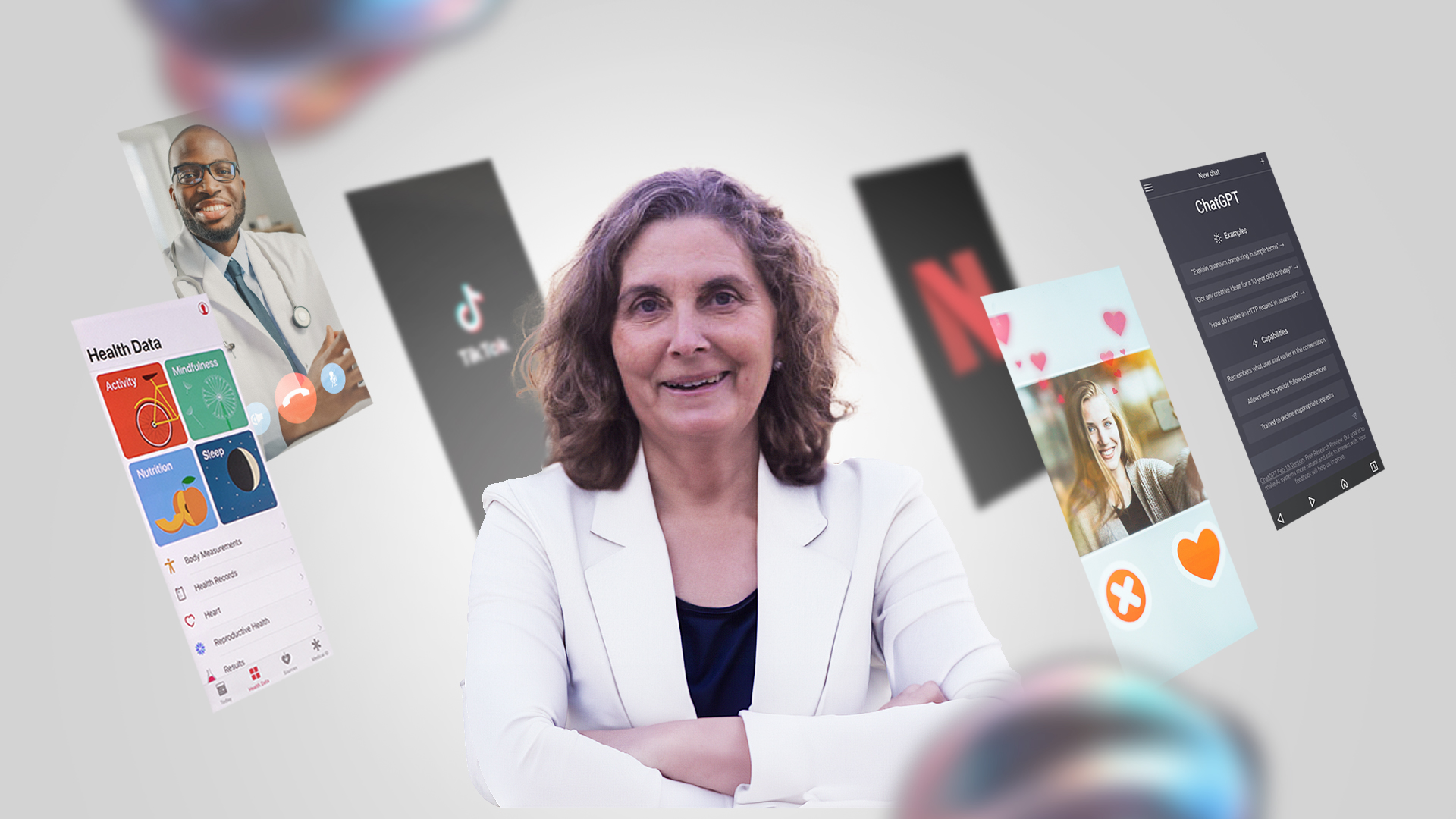By Chity del Pozo, brand consulting and consumer psychology expert
It is curious to observe how society has been adapting to new times and new technologies rapidly, especially in the wake of the pandemic. All generations have increased their skills in the online world, which has become a continuous source of interest and curiosity.
Who, nowadays, has not made an online purchase or connected to a platform for a professional or personal meeting? Who has not tried or is eager to try Artificial Intelligence? Virtual ideal matches and beauty pageants are already being organized using AI, along with various jobs and articles that make our lives easier.
Technology during the pandemic pushed us out of our comfort zone, forcing us to learn things we might not have learned for years, but we did it because humans are like that; we succeed when challenged.
ICT is altering everything, presenting daily challenges. We are in the midst of a technological revolution, the consequences of which future generations will discuss and explain, but which has already modified almost everything around us:
– The way we relate, socialize, or even seek partners is increasingly virtual. We interact through networks or platforms more naturally and routinely because it is more comfortable, reaches more people, and is faster.
– Health, well-being, and care are now facilitated through health applications that monitor our vital signs daily or track physical exercise. Smartwatches and platforms allow us to stay updated on our body’s information at all times. Post-pandemic, we have become accustomed to telemedicine: online or phone medical consultations that were previously uncommon. Elderly people living alone can monitor and communicate through telecare devices or accompany themselves with robots that remind them when to take medication and engage in conversation, among other things.
– The world of work has also been transformed in every aspect. Today, younger generations demand remote work, and job offers already classify positions based on whether they are onsite, remote, or hybrid. New entrepreneurial talent is also captured through networks, and profiles are discarded based on what is perceived through their social media. In this sense, it seems that we are moving towards a collaborative work approach to maximize employee performance and satisfaction, as trends suggest, but we will increasingly work separately.
– The business market is influenced by intelligent applications and new software programs that autonomously analyze data, understand patterns, predict outcomes, and perform tasks that previously required human intervention. These technologies also simplify and accelerate the process of analysis and reporting. This, coupled with what is called “datafication,” will allow predicting trends, behaviors, and personalizing services, although now it seems that robots are experiencing breakdowns from working 20-hour shifts… We’ll keep an eye on what this will entail.
– Learning is evolving. New generations are learning through connectivity, as the internet takes us from one place of interest to another, helping us internalize knowledge. Learning to filter what interests us and establish connections between disparate knowledge is the essence of connectivism. Teachers must use technology in the classroom to help students develop these skills because it is now impossible to attend as before. The theory of connectivist learning is relatively new; it takes into account the digital age and is based on how we use different “connected” networks to learn and expand our knowledge—seemingly more effective in teaching new generations.
– Media consumption has shifted online, capturing and connecting with audiences. We are witnessing the decline of traditional television, print newspapers, and radio, while podcasts, videos, and online advertisements continue to grow. Brands are also utilizing shorts, series, and other programs to engage with people. Out-of-home advertising is increasing because it apparently proves most effective, or even false news is communicated to grab attention (FOOH), like McDonald’s launching a french fries-scented perfume in China, which had us fooled for 15 days, but kept us engaged with the brand.
– Entertainment and culture are becoming increasingly digital. Preferences lean towards series over movies, on-demand content penalizes classic entertainment forms such as cinema, theater, and museums, which have had to reinvent themselves to become more experiential and immersive to fill audiences.
– Purchasing is becoming more immediate and home-delivered. Those who didn’t engage in it before initiated it during the pandemic, and now convenience and immediacy are paramount, as well as mobile or watch-based payments.
– Organizing daily life and the possibility of always being connected, alerting us to what we need to do at every moment and keeping us constantly in touch, whether we want it or not.
Now, we have yet to see how all this, which seems to help us and make our lives easier, especially during a pandemic where we could stay home, truly does so. Yes, we have changed a lot in a short time, and new technologies help us stay connected, informed, and provide conveniences, but will it be real? Is it healthy to always be connected, or will more and more people suffer from FOMO syndrome? How will these technologies affect us in the future? Why are there increasingly more Luddite movements and platforms against screen usage in children? Why do many services and brands already offer disconnection options?… Time will tell, and we’ll see who it sides with.









